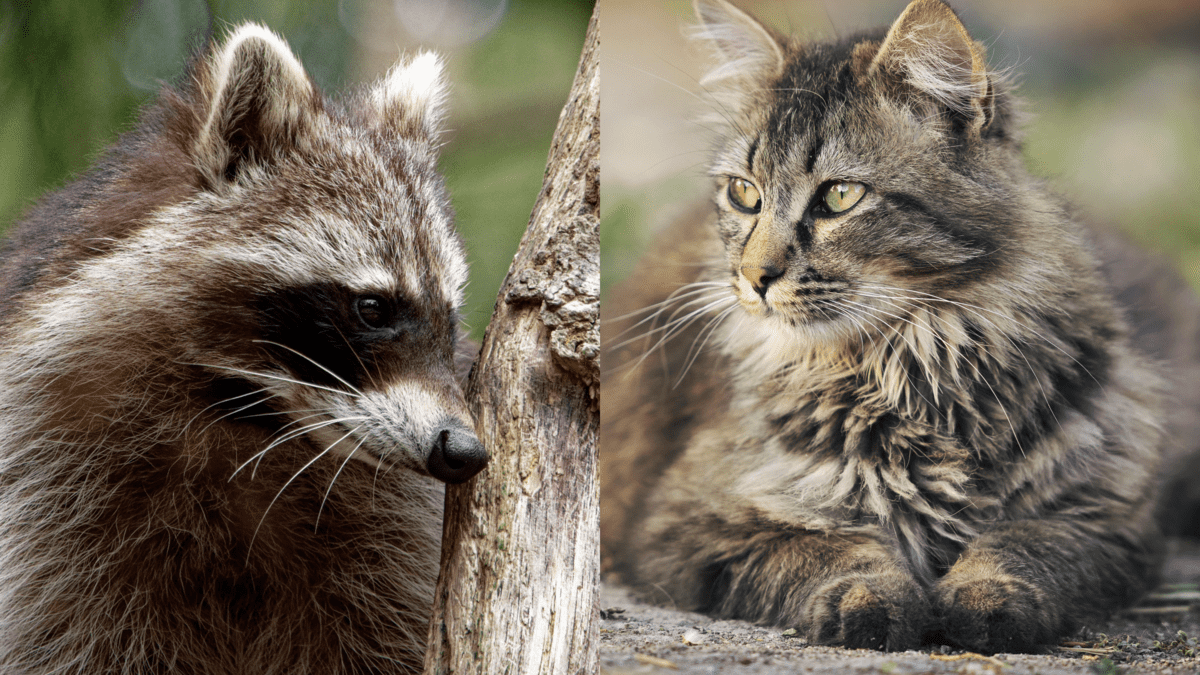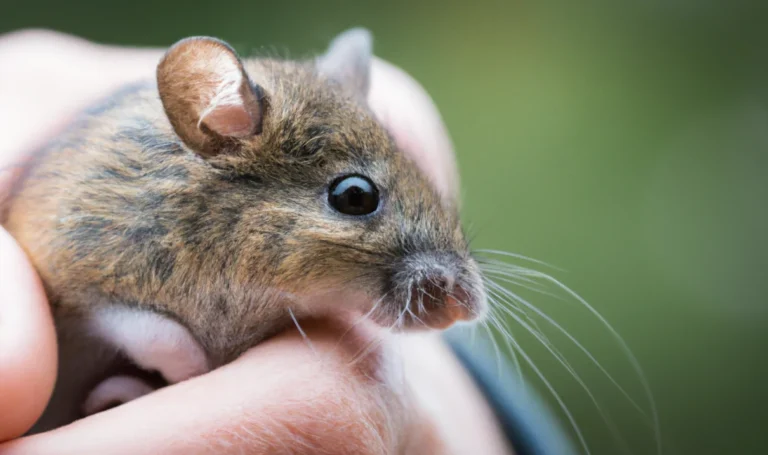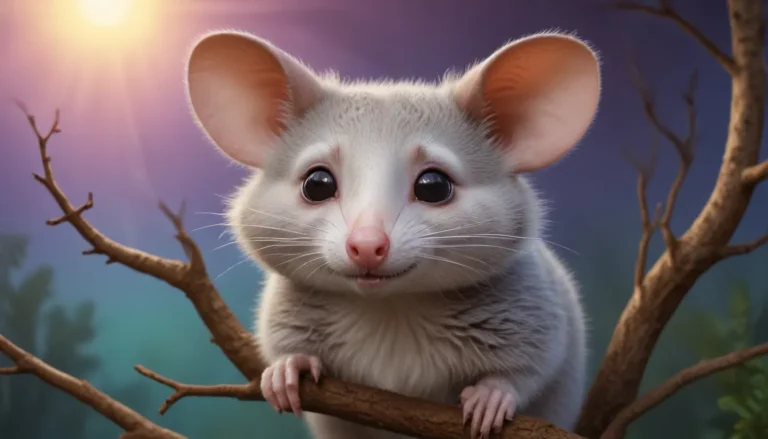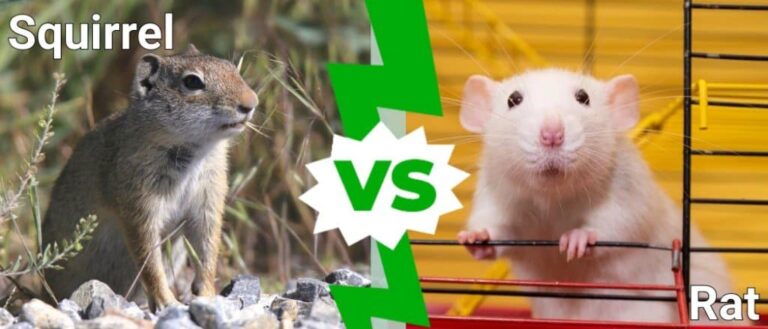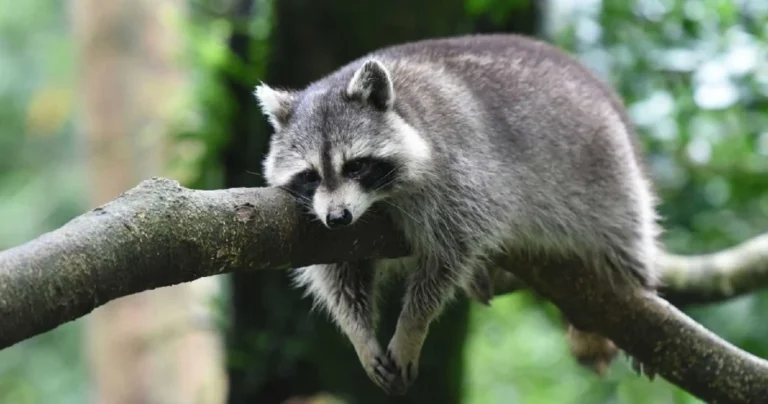Do Raccoons Kill Cats? Uncover the Facts Here
Overview
This is because unlike cats, raccoons are wild animals that can become dangerous to children, domestic animals and other wildlife forms. While it is a debatable concern for the owners of the pets, it will be appropriate to gather sufficient information in order to determine whether raccoons chase away cats.
In the course of this discussion, the areas of interest to be addressed include the transformer raccoon threat to cats, the raccoon’s interaction with cats, and how one can protect his/her cat from raccoons.
Raccoon Behavior and Characteristics
Also known as the mask-wearer raccoons are Procyon lotor which belong to the group of the omnivorous mammals and they have adapted to live mainly in the regions of America which is majorly at night. They are identified by what has been referred to as the ‘mask’ of black it round the eyes, the nimble front limbs and ringed tails.
Raccoons are fairly smart and flexible animals who can inhabit different areas, even cities, forests and residential areas.
Our raccoons are commonly known as pests mainly because they feed on a wide variety of items such as those in trash cans, bird feeders, and even human rich foods. However, their conduct can sometimes give a wrong impression that puts them in a position where she or they have to deal with pets such as cats.
Where Do Raccoons Go During the Day?
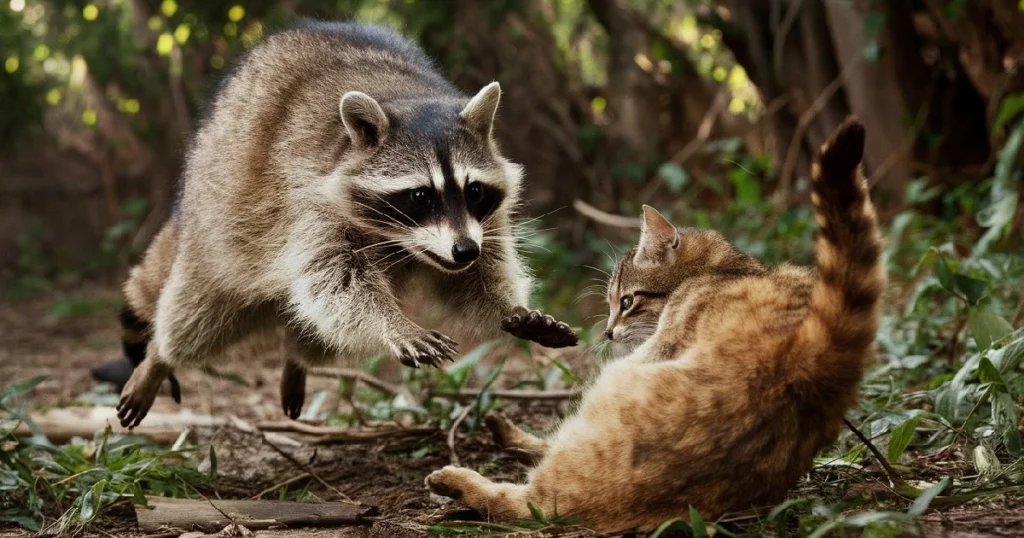
Raccoons and Cats
Despite the fact that raccoons stay clear from confrontation, there are occasions when the raccoons become dangerous to cats at home. It is thus important to note that the behaviors of raccoons and cats are greatly influenced by the size of the cat, the availability food, territorialism, and certain sickness of the raccoons.
1. Predatory Behavior of Raccoons
Foods that raccoons favour might be categorized as omnivorous, starchy, high-energy, canned, and corn-based products or pallets. Nevertheless, it must be mentioned that they are not strict carnivores, but they do kill small animals if they can. Originally raccoons inhabited forests and partly wooded areas where the possibility of hunting small mammals, birds and even reptiles existed. Even though raccoons do not hunt cats, it becomes a different case if a raccoon finds a small kitten or a weak and vulnerable cat because they may eat anything is they are hungry. Adult cats especially those in good health and on a well-balanced diet, do not go seeking to be knocked dead by raccoons. Raccoons are unlikely to confront adult cats since the latter is known to be quick, equipped with sharp claws, and very protective.
2. Raccoons and Territoriality
Raccoons are known to be territorial animals and this is mostly so especially when there is a question of food. There is a possibility that if raccoon finds that its space has been infringed by a cat, it becomes more aggressive. Although raccoons are not aggressive animals, cats are territorial, and if the raccoon intrudes into their territory especially when the cat is cornered it may result in a fight.
It is said that cats are territorial animals and they will open an aggression against a raccoon and this could lead to a fight. Nonetheless, according to sources, raccoons’ claws and jaws are strong and, in a fight, raccoon can easily defeat a cat and even kill it if the cat has not prepared or is not strong enough.
3. Health Risks
One of the primary concerns for pet owners when it comes to raccoons and cats is the potential for disease transmission. The wild raccoons are known to be carriers of several diseases that can be passed on to the domestic cats, such as
Raccoons are among the leading wildlife animals that are known to cause rabies in human beings and other animals. Although one is not likely to get the virus from any random contact, should the cat be bitten or scratched by a raccoon that has the virus, rabies is likely to set in.
- Leptospirosis: This is a bacterial disease which can be contracted through urine and can be brought by raccoons. Any cat that gets in contact with such water or dirt it may be susceptible to the disease.
- Toxoplasmosis: Domestic raccoons are also known to be carriers of parasites that may infect other animals including cats through Toxoplasma gondii.
- Roundworms: Raccoons are hosts for roundworms which are contained in the feces of raccoons and can be contacted through contact with them or with the environment.
Therefore, even if a raccoon is not aggressive and does not scratch a cat, one should not disregard the possibility of an infection.
4. Size and Age Considerations
Everything that has been said above shows that the size and health condition of the cat are critical in deciding whether a raccoon can kill it. Mainly, healthy and strong adult cats are least vulnerable to the attacks of raccoons. However, it affects small kittens or cats that are in a weak state than others do. However, a raccoon poses a threat to cats that are sickly, old or cannot chase its tail through hunting as it becomes instinctive upon seeing the cat.

Preventing Raccoon-Cat Conflicts: Tips for Pet Owners
Even though raccoons are primarily nocturnal, as well as elusive, and that they tend to avoid human beings and pets, ensure that the following tips are taken to reduce the risks that come with raccoons and their interactions with cats.
The last but not the least important advice is to confine your cats inside the house especially after dusk because raccoons are nocturnal creatures that become active during the night. Thus, to minimize the interaction, one should keep the cats inside, especially during the evening and nighttime when raccoons are active. Indoor cats are not only safe from raccoons but also from other risks including traffic accidents, or encounter with other predators as well as diseases.
Raccoon will follow food sources and easily get attracted to them. They will occupy secure trash cans and such related items as well as containers filled with food. Tie up garbage containers and clear compost piles or other food for pets left outdoors. If you have feeders for birds or bowls of food outside for your pets, it is advised to bring them inside especially at night to ward off raccoons.
- Outdoor Access: If your cat goes outdoors then design an enclosed secured area such as a “catio” where your cat can spend its time. A catio refers to a partially enclosed area that will enable your cat to get outside while being shielded from adversity such as raccoons, dogs, and even flowing traffic.
- Possible Sites of Rat and Raccoon Invasion: Raccoons are known for searching and gaining entry into your house through the loft space, basement, or even the garage. Ensure that all entry points to your house are sealed well in order not to let in raccoons or allow them to interact or get in contact with cats. This consists of sealing any cracks on the wall, window, or doors among other areas that require cementing.
- Install Bolts on the Roof: It is recommended to install motion-sensor lights as raccoons are mostly active at night and will avoid well illuminated areas. It is also advised to install the lights in the yard and around your house which move when the animal approaches because raccoons are afraid of lights that are similar to sunlight.
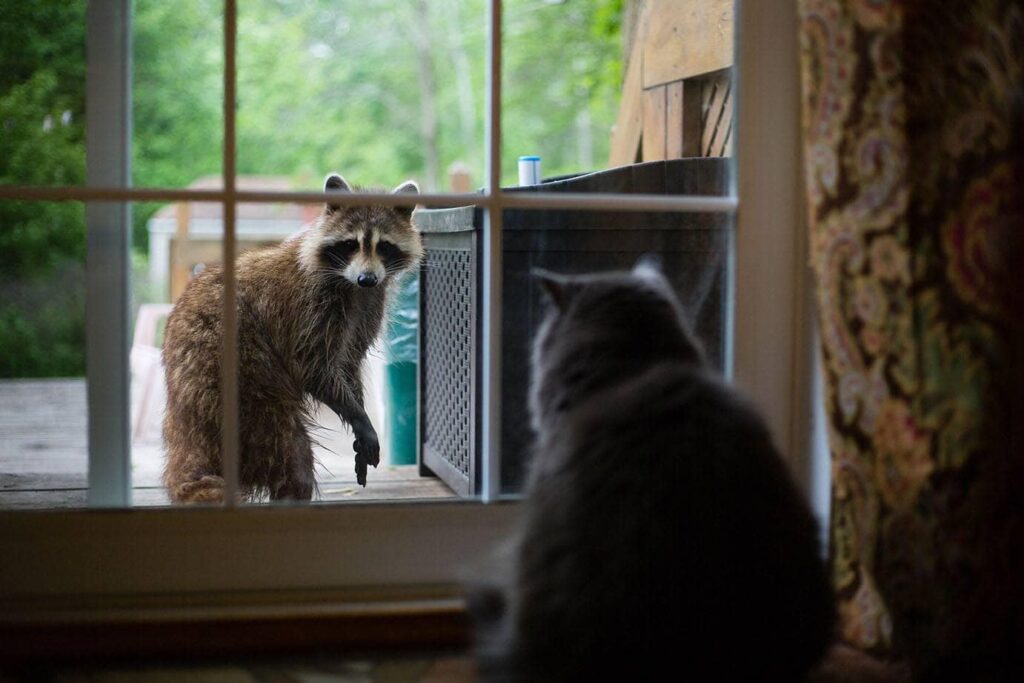
Detail Table ,Raccoon vs Cat
It is necessary to determine how strong raccoons are and how much a cat would be able to fight back and in this way whether the raccoon can be a threat to the cat:
| Feature | Raccoon | Cat |
|---|---|---|
| Size | 10 to 30 pounds (4.5 to 13.5 kg) | 5 to 20 pounds (2.3 to 9 kg) |
| Claws | Sharp, strong, and capable of climbing | Sharp, retractable claws, agile |
| Jaw Strength | Powerful, capable of crushing small prey | Moderate strength, capable of self-defense |
| Speed | 15 to 20 mph (24 to 32 km/h) | 30 mph (48 km/h) |
| Defensive Behavior | Defensive when threatened, but prefers to avoid fights | Territorial, will defend itself aggressively |
| Typical Diet | Omnivorous, scavenger, opportunistic | Carnivorous, skilled hunter |
FAQs
Q: Can raccoons kill a cat?
A: Raccoons themselves are not hunting cats but they can be a menace especially to the small or sick ones and usually this is determined by either if the raccoons are attacked first or they are hungry.
Q: What can I do to protect my cat from raccoons?
It is best to avoid or minimize contact with raccoons, keep your cat indoors, especially at night, feed your cat indoors, and seal areas that raccoons can possibly enter such as gaps or holes to your home.
Q: Do raccoons carry diseases that can harm my cat?
A: Yes, raccoons can have bacteria like raccoon roundworms, rabies, leptospirosis, toxoplasmosis, and a number of other worms which can infect cats.
Q: Are raccoons more dangerous to kittens than adult cats?
A: Yes, raccoons are more of a threat to small kittens or disabled cats since these are the cats that a raccoon will easily handle rather than a healthy adult cat.
Conclusion
Raccoons are not usually found to be aggressive towards cats and will not pursue them, but those that are in search of food will become a thorn in the neck of small cats that are easy to prey especially when the raccoon feels the cat is trapped. They may become aggressive at time and this make them attack a cat especially when they feel that the cat poses a treat to them or if the cat is sick or is in a weak state. Although raccoons pose a low threat to adult, healthy cats, one should not let the guard down and take some preventive measures to keep cats safe.
More Read= Will Raccoons Kill Cats? Find Out Here | Critter Stop

